Unit NCIR
SKU:U028
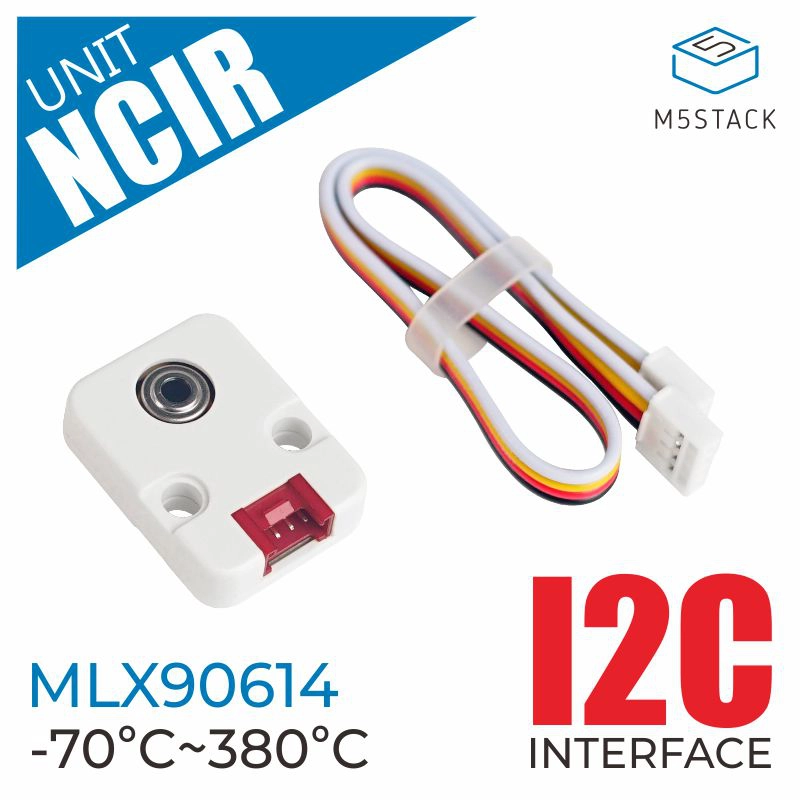
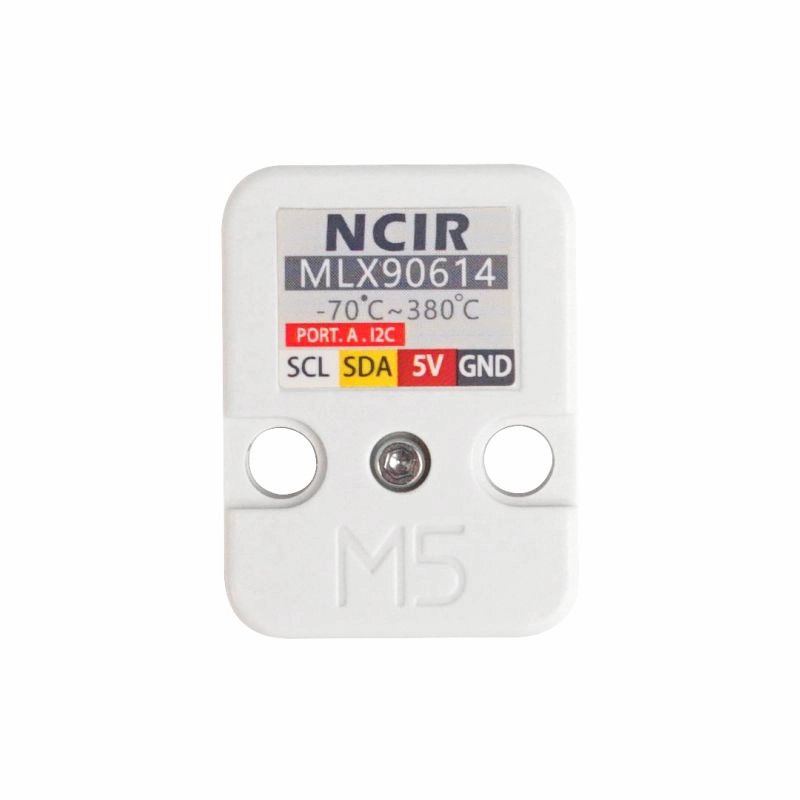
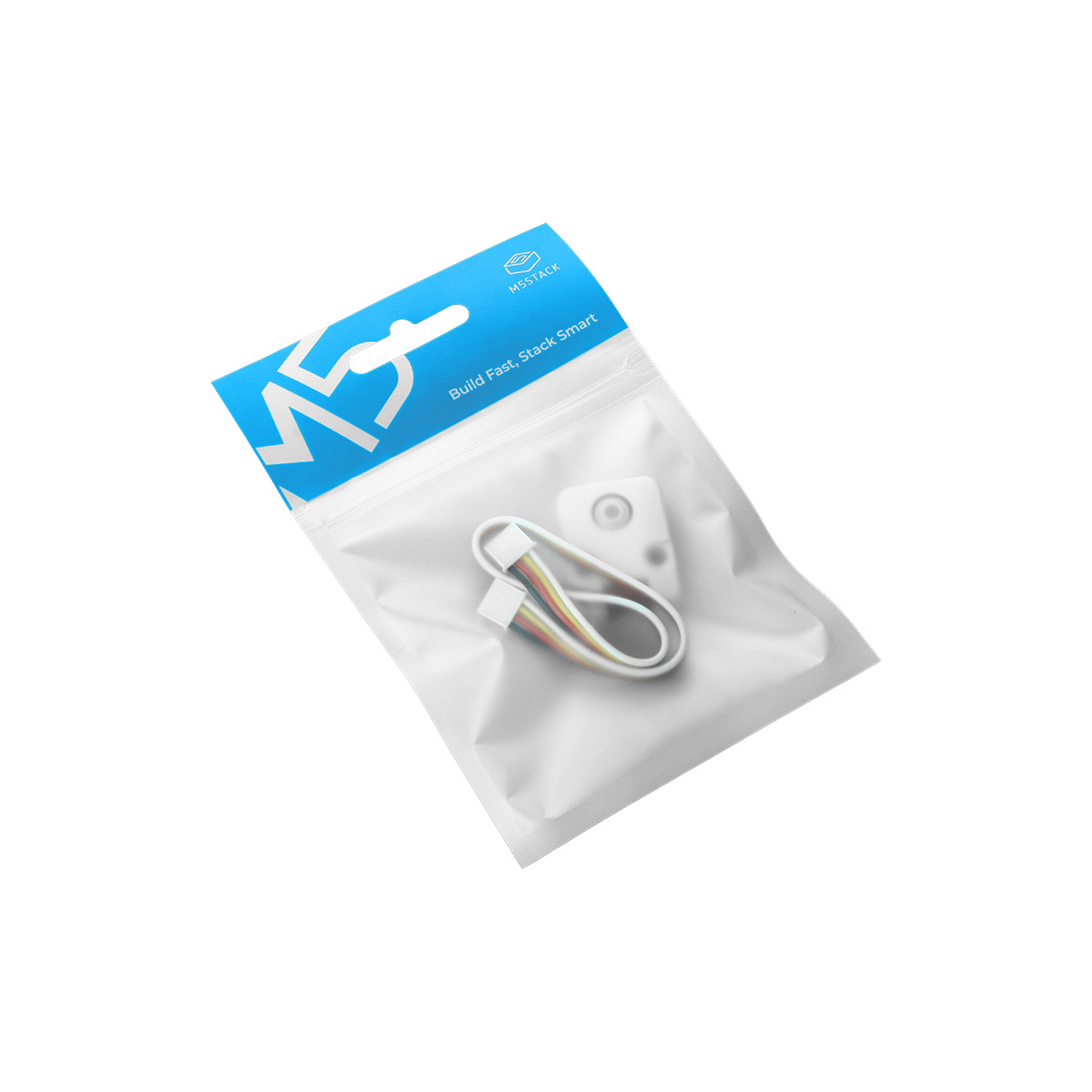
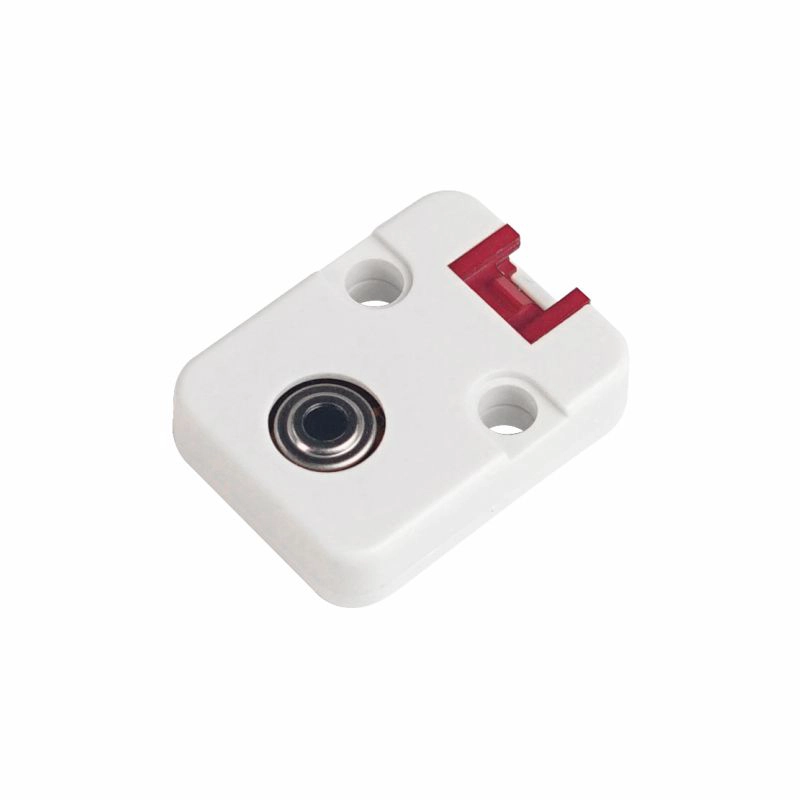




Description
Unit NCIR is a single‑point infrared temperature measurement sensor. It features a built‑in infrared sensor MLX90614, capable of measuring the surface temperature of the human body or other objects.
Unlike most contact‑type sensors, this sensor detects temperature by measuring infrared light emitted from distant objects, without physical contact. This gives it a wider temperature measurement range: ‑70 °C to + 380 °C. With a field of view of 90°, it can quickly and conveniently measure the average temperature at a certain position.
This Unit connects to M5Core via PORT A I2C (0x5A).
Features
- MLX90614ESF‑AAA
- Object and ambient temperature measurement
- Development Platform: Arduino, UIFlow (Blockly, Python)
- 2 x LEGO‑compatible holes
Includes
- 1 x Unit NCIR
- 1 x HY2.0‑4P Grove Cable (20cm)
Applications
- Human body temperature measurement
- Object (biological) motion detection
Specifications
| Specification | Parameter |
|---|---|
| Communication Interface | I2C Communication @ 0x5A, Interface Speed: 100Kbps |
| Object Temperature | -70 °C ~ 380 °C |
| Ambient Temperature | -40 °C ~ 125 °C |
| Accuracy | ±0.5 °C |
| Field of View | 90° |
| Product Size | 32.0 x 24.0 x 8.6mm |
| Product Weight | 4.8g |
| Package Size | 138.0 x 93.0 x 13.0mm |
| Gross Weight | 10.0g |
Schematics
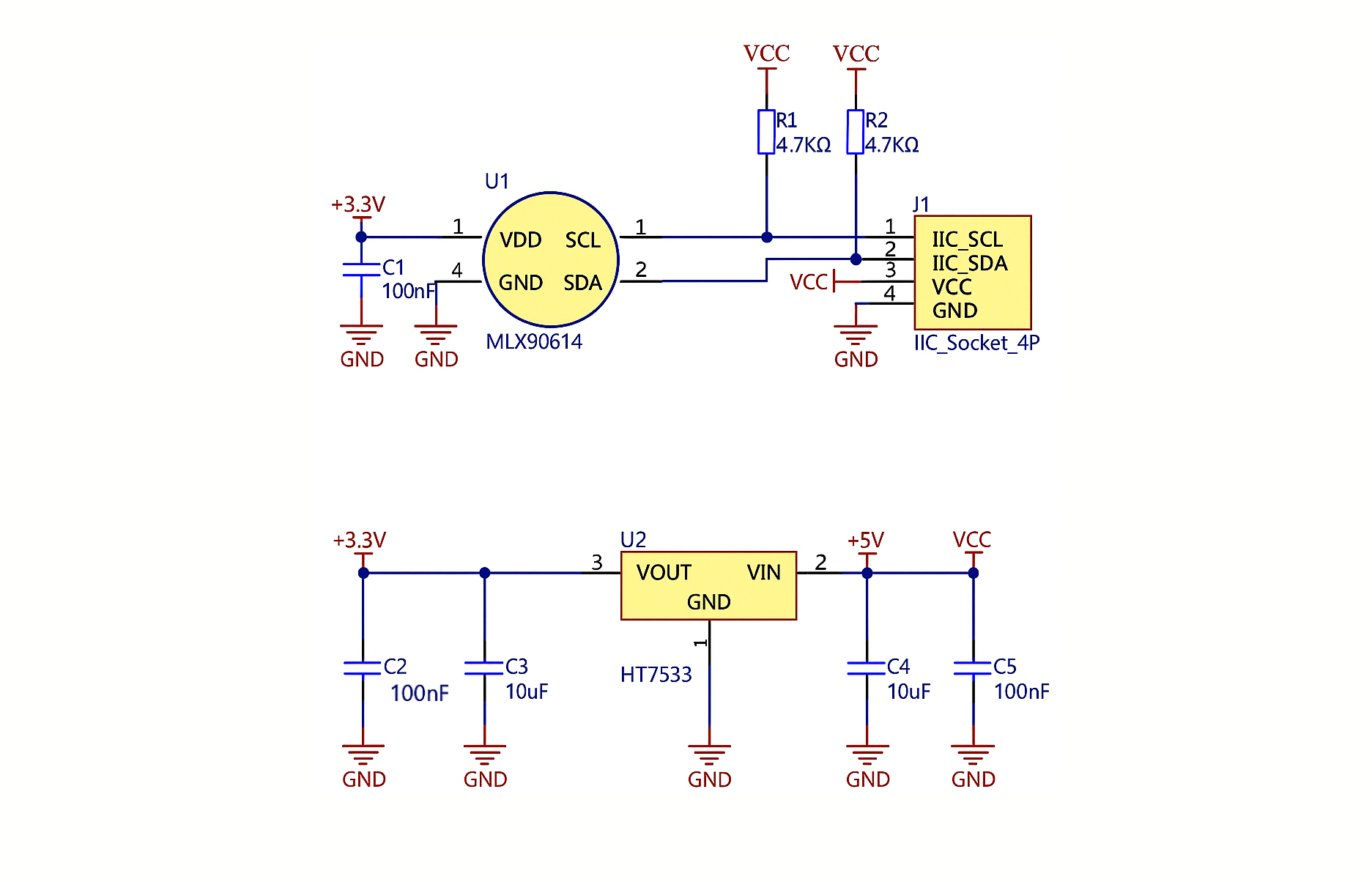
PinMap
Unit NCIR
| HY2.0-4P | Black | Red | Yellow | White |
|---|---|---|---|---|
| PORT.A | GND | 5V | SDA | SCL |
Model Size
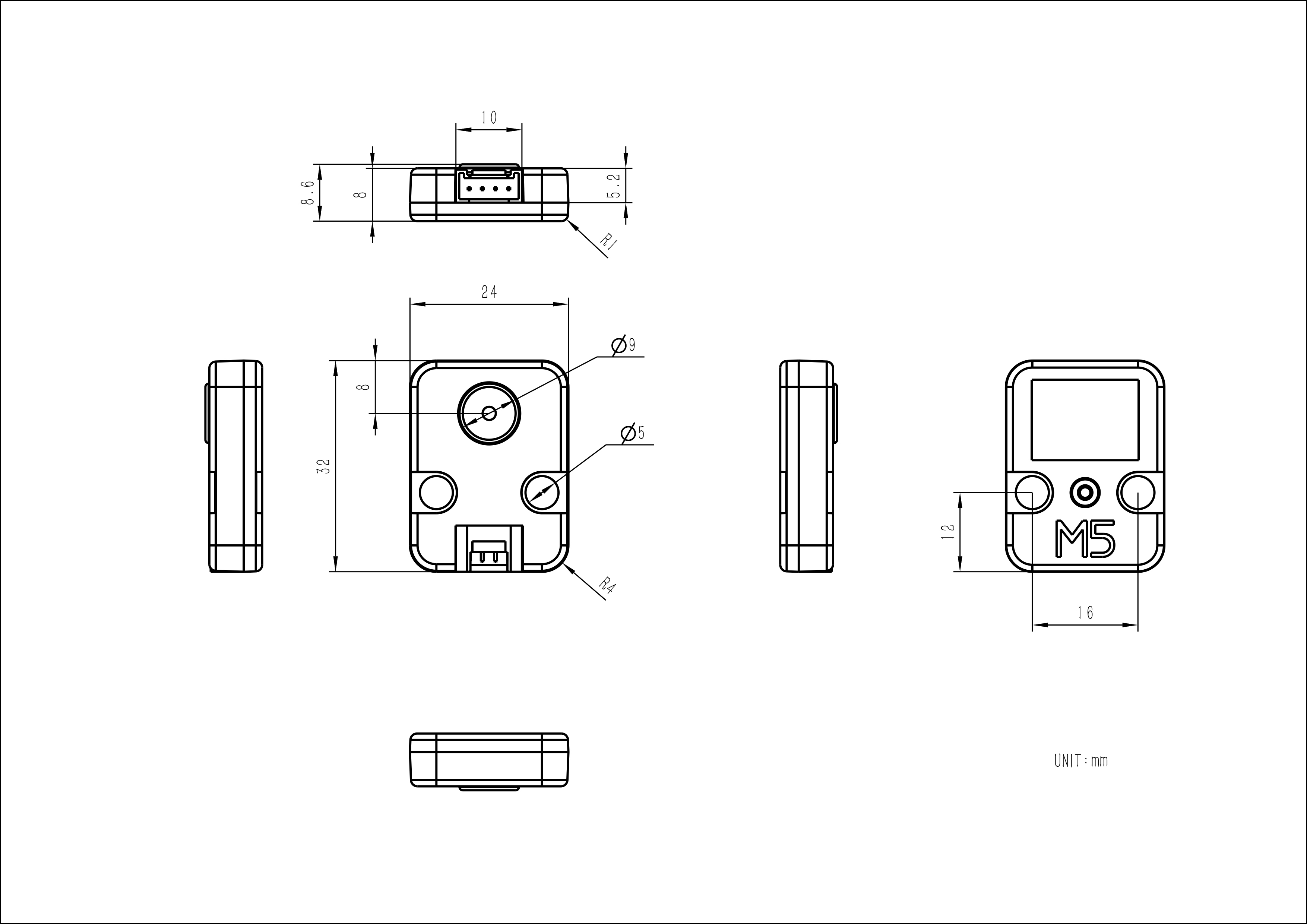
Datasheets
Softwares
Arduino
UiFlow2
Home Assistant
EasyLoader
| Easyloader | Download | Note |
|---|---|---|
| Unit NCIR Test Easyloader | download | / |
Video
- Display current detected temperature value on screen.